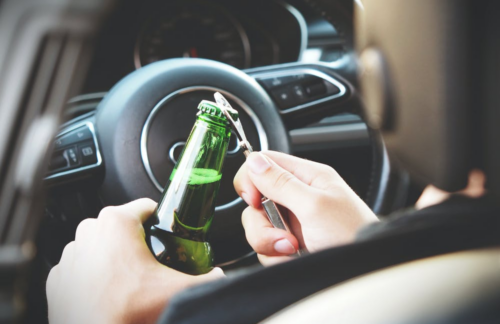DWI and DUI convictions cause similar harm to a person’s driving records. Still, the acronyms don’t mean quite the same thing. A DWI designation means driving a vehicle while intoxicated, while DUI means driving under the influence. Regardless of the difference, you’ll want to avoid having these three letters appear on your driving history.
DWI and DUI: A Brief Rundown on Similarities and Differences
Driving While Intoxicated (DWI) indicates your BAC is at or above the legal limit while driving a vehicle. Driving Under the Influence (DUI) means operating a vehicle under the influence of drugs or alcohol.
Some states use the acronym OWI (Operating While Intoxicated), OUI (Operating Under Influence), or DWAI (Driving While Ability Impaired) instead of DWI or DUI. Nonetheless, law enforcement officers have discretion in determining whether you’re too impaired to drive.
An officer can cite you for impaired/intoxicated driving if your Blood Alcohol Content (BAC) is not above the state limit or if you’re sitting in a stationary vehicle. If an officer has cause to believe you’re too impaired to continue driving, they will issue a DUI/DWI citation. The consequences of conviction can include the following:
Fines
Depending on the jurisdiction, you’ll probably have to pay court fees and miscellaneous fines. Community service, probation, and jail time are also potential legal consequences.
Alcohol or Drug Rehabilitation
The state may require you to undergo a stringent assessment of substance abuse or alcohol consumption patterns. Based on the findings, you might need to enroll in a Virginia Alcohol Safety Action and Driving Improvement program, ranging from residential treatment facilities to support group meetings.

License Suspension
If a court convicts you of DWI or DUI or you plead guilty, you will probably lose your driving privileges. After a mandatory suspension period, you’ll need to file an FR44 certificate (proof of insurance) with the Virginia DMV to reinstate your license and get back on the road.
Virginia FR44 insurance is for high-risk drivers and often leads to higher premiums. Insurance carriers view drivers with DUI or DWI convictions as riskier to insure than people without them.
Do you have a violation such as reckless driving, excessive points, uninsured accidents, driving without a license, or non-payment of child support? In that case, you’ll need to file an SR22 certificate. You’ll most likely need to maintain Virginia SR22 or FR44 insurance without lapse for three years.
Ignition Interlock Device
In some cases, the state will require you to install an ignition interlock device (IID) in your vehicle. You cannot start the engine unless you first pass the breathalyzer test on the device.
IID costs vary according to the type of device, installation method, calibration, monitoring, and removal. However, you can get a low-cost IID installation in Virginia by connecting with UltraCar Insurance.
Get A Virginia FR44 Filing From UltraCar Insurance
If you’re in the high-risk driver category and have been shopping around to find the best price, we’re glad you found us! UltraCar Insurance offers affordable premiums to all drivers, including those who must file FR44 or SR22 certificates in Virginia. In addition, we partner with state specialists at Intoxalock for the IID service you require to get back on the road in no time.
UltraCar Insurance helps you get cost-effective insurance coverage for all types of vehicles. Our specialists know state compliance laws regarding high-risk insurance coverage and SR22 / FR44 certificate filings. Whether you need an auto, non-owner, or motorcycle insurance policy, we’re ready to help.
Reach out to our professionals, give us a call or start a free online quote when you need FR44 or SR22 insurance in Virginia.

